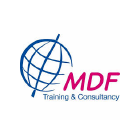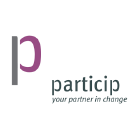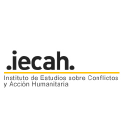WORKING WITH DG ECHO AS AN NGO PARTNER | FPA 2014 - 2020
REMOTE MANAGEMENT
ECHO defines remote management as an operational approach used to provide relief in situations where humanitarian access to disaster-affected populations is limited by security concerns and/or formal or informal decisions imposed by de jure or de facto authorities, thus requiring adjustments to the management of the humanitarian actions.
The absence of international staff does not imply automatically a situation of remote management. An action will not be considered remotely managed as long as measures have been put in place that allow those who are ultimately responsible for the action to ensure the required quality
ECHO does not fund actions using remote management other than in the most exceptional circumstances, such as security concerns, major bureaucratic obstacles, and force majeure.
ECHO will consider funding actions involving remote management only when it can answer in a satisfactory manner the questions below:
-
Is there an access problem?
-
Does the proposed action include acceptance-building measures?
-
Is it direct-life saving action?
-
Can the action be implemented without risking the lives of those undertaking the work on the ground?
-
What is the source of the needs assessment in a remotely management action?
-
Is the staff adequately qualified?
-
Are the monitoring arrangements adapted for remote management?
It can be difficult to establish a clear dividing line between direct implementation and remote management. Some locations may be temporarily off-limits for non-local staff simply because seasonal rains have made the roads impassable. Hostilities might affect one location covered by a project while other areas remain peaceful and accessible. Authorities may prevent travel to one region but allow it to others. Many humanitarian actions, therefore, combine elements of remote management with direct implementation. An action may, for example, include training and capacity building that are managed directly, while the distribution of relief supplies in unsafe areas is implemented by local staff or partners and supervised remotely.
The ECHO's Approach to Remote Management (dowload available below) provides guidance for DG ECHO staff on remote management, explaining what considerations must be made before accepting an action including a remote management component. The note can be used by Partners as a reference.
REMOTE MANAGEMENT AND THE SINGLE FORM
The remote management mechanism should be clearly explained in the Single Form. The partner is invited to read the assessment criteria explained in ECHO approach to remote management to identify the information to be provided in the various sections of the Single Form. Particular attention will be paid to:
-
section 6.1 of the Single Form, to see which is the organizational and management structure in place,
-
Section 6.7 - implementing partners
-
section 8.1, where the Partner should describe how the monitoring arrangements have been adapted to this specific working environment.
-
section 8.4, where the Partner shoudl indicate whether the action is implemented under remote management
MODIFICATIONS AFFECTING THE USE OF REMOTE MANAGEMENT
Where remote management is proposed by a partner for an ongoing action, due to a change in circumstances that hinders or prevents direct implementation (e.g. force majeure, security concerns, etc), ECHO will use the same criteria than the ones mentioned above to assess whether the action should be:
-
continued using remote management approach;
in these cases, the partner will inform immediately ECHO of those circumstances hindering the implementation of the action and requiring remote management. The partner will submit a modification request including necessary information on the remote management measures. This modification requires the approval of ECHO through the Mutual Consent procedure.





